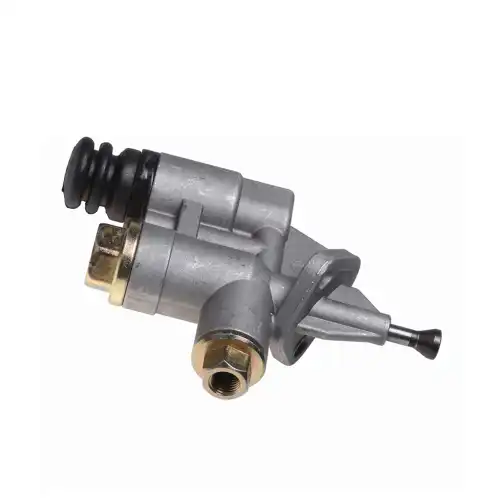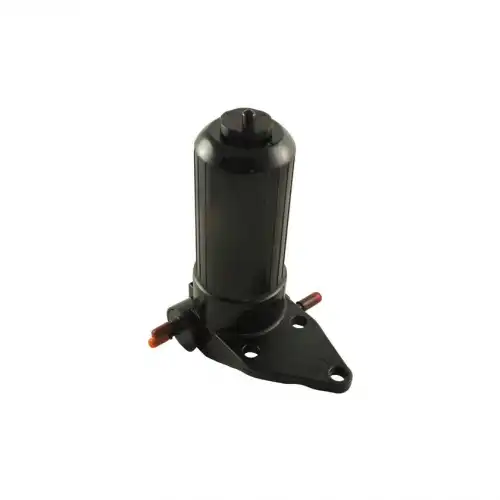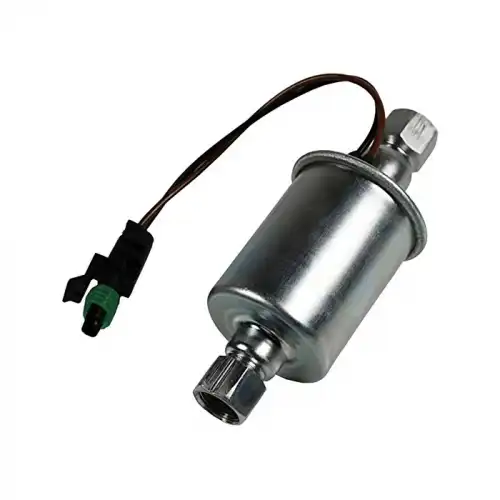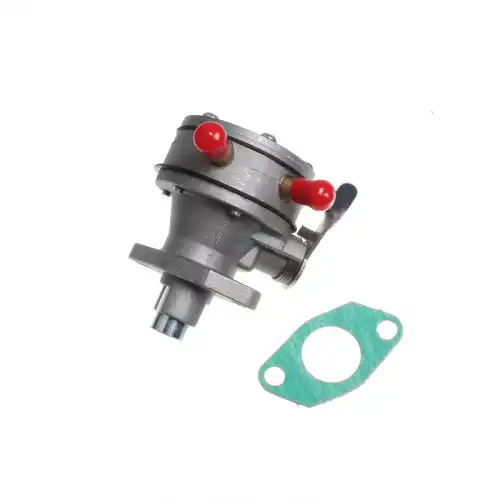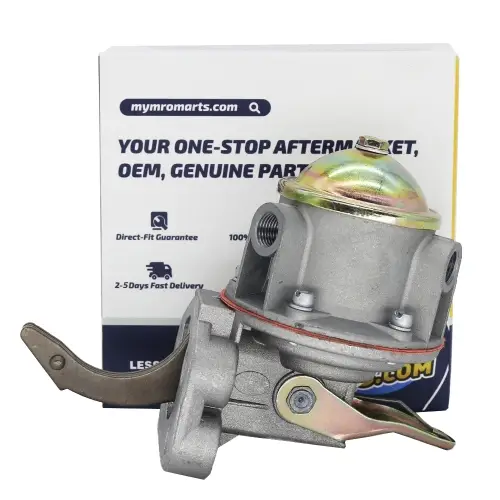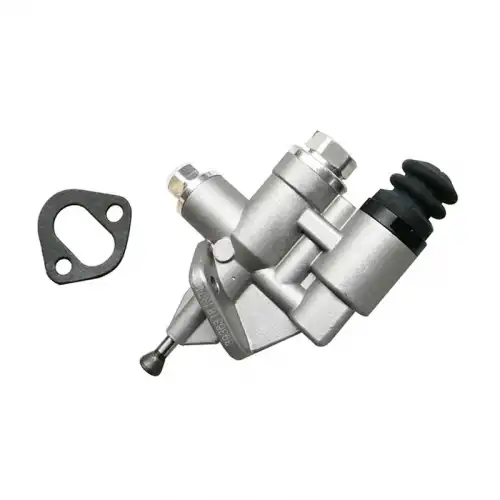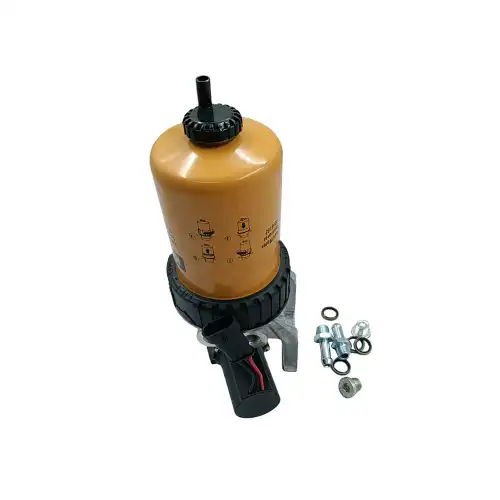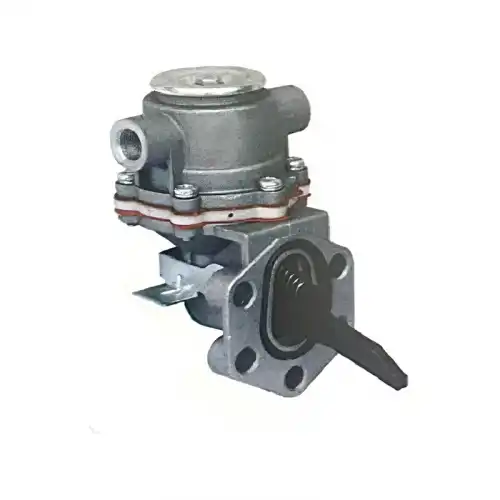Understanding Diesel Fuel Lift Pumps: Their Importance, Function, And Common Problems
In the world of heavy vehicles, diesel engines play a crucial role due to their unmatched power and efficiency. To ensure the smooth functioning of a diesel engine, various components are required, and one such vital component is the diesel fuel lift pump. MyMROmarts, as a professional diesel fuel lift pump supplier, offers high performance replacement diesel fuel lift pumps for sale. Our different types of fuel pumps are suitable for tractors, trucks, excavators and other heavy equipment.Today's purpose is to discuss in depth what is a diesel fuel lift pump, what does a diesel fuel lift pump do, and what are the problems with a diesel fuel lift pump. Help you solve the confusion about the cognition of diesel fuel lift pump.
What Is A Diesel Fuel Lift Pump
A diesel fuel lift pump is a mechanical device responsible for supplying fuel from the fuel tank to the engine. It is the first stage in the fuel distribution process and is mainly present in automobiles with diesel engines. gasoline is sent to the engine via the diesel fuel lift pump, which ensures a steady and dependable supply of gasoline for optimum engine performance.
What Does A Diesel Fuel Lift Pump Do
A diesel fuel lift pump is a crucial component of the fuel delivery system for diesel engines. Its main job is to move fuel from the fuel tank to the engine's injection system, making sure that the engine gets the right amount of fuel and at the right pressure for optimum performance.MyMROmarts, a fuel pump supplier, will go into great depth about what a diesel fuel lift pump works.
The key functions and responsibilities of a diesel fuel lift pump include:
1.Fuel Transfer: The diesel fuel lift pump main task is to transfer fuel from the fuel tank to the engine. It pulls or pushes the fuel, depending on the pump type, to maintain a consistent flow of fuel to the injection system.
2.Fuel Priming: When a diesel engine is initially started or after the fuel system has been serviced, air can enter the system. The diesel fuel lift pump helps in priming the fuel system by removing any air pockets or air bubbles that may have formed, ensuring that only fuel is present in the lines.
3.Fuel Filtration: Lift pumps often incorporate fuel filters to remove impurities and contaminants from the fuel before it reaches the engine. This helps prevent clogs and protects sensitive components of the fuel system from damage.
4.Fuel Pressure Regulation: Diesel engines require a specific fuel pressure for efficient combustion. The lift pump regulates the fuel pressure by delivering fuel at the required rate to meet the engine's demands.
5.Fuel System Integrity: The diesel fuel lift pump aids in maintaining the integrity of the fuel system by preventing fuel starvation or inadequate fuel flow. It ensures that the injection system receives a steady and consistent supply of fuel, promoting smoother engine operation.
It's worth noting that the design and operation of diesel fuel lift pumps can vary depending on the specific engine and fuel system configuration. Some diesel engines use mechanical lift pumps driven by the engine itself, while others employ electric lift pumps controlled by the engine's electronic systems.
In conclusion, a diesel fuel lift pump is an important part of a diesel engine's fuel system. It moves fuel from the tank to the injection system, aids in removing impurities and air, controls fuel pressure, and makes sure that fuel is flowing steadily for optimum engine performance.
What Are The Problems With A Diesel Fuel Lift Pump
Diesel Fuel Lift Pump Problems:
Like any other engine fuel system parts, diesel fuel lift pumps are susceptible to problems over time. It is crucial to identify and address these issues promptly to prevent further damage and maintain the heavy vehicle's performance. Here are some common problems associated with diesel fuel lift pumps:
1.Insufficient Fuel Delivery: One prevalent issue is insufficient fuel delivery to the engine. This can occur due to a clogged or damaged lift pump, resulting in decreased fuel pressure and inadequate fuel supply. As a result, the engine may struggle to start, exhibit reduced power output, or even stall while running.
2.Fuel Contamination: Another problem that can arise is fuel contamination. When the diesel fuel lift pump fails to function correctly, contaminants such as dirt, debris, or rust particles from the fuel tank may enter the fuel system, leading to clogged fuel filters and injectors. This contamination can negatively impact engine performance and potentially cause irreversible damage if not addressed promptly.
3.Noise and Vibration: A malfunctioning diesel fuel lift pump can also produce unusual noises and vibrations. Excessive noise or vibration could indicate issues such as worn-out bearings, damaged impellers, or loose connections within the pump assembly. Ignoring these signs may result in further damage to the lift pump and other components of the fuel system.
Prevention and Maintenance for Diesel Fuel Lift Pump Problems:
To mitigate diesel fuel lift pump problems, it is crucial to follow proper preventive measures and maintenance routines. Regularly inspecting and replacing fuel filters is essential to prevent contamination and ensure a consistent fuel supply. Additionally, checking fuel lines and connections for leaks or damage can help maintain the integrity of the fuel system.
Furthermore, it is advisable to use high-quality diesel fuel from reputable sources to minimize the risk of fuel contamination. Adequate fuel tank maintenance, including periodic cleaning, can also contribute to the overall health of the diesel fuel lift pump and the entire fuel system.
In the realm of heavy vehicles, diesel fuel lift pumps play a vital role in ensuring efficient engine performance. These mechanical devices are responsible for providing a steady supply of fuel, maintaining proper fuel pressure, and preventing fuel starvation. However, like any component, lift pumps can encounter problems such as insufficient fuel delivery, fuel contamination, and noise/vibration issues.
By recognizing the importance of diesel fuel lift pumps and understanding their functions and potential problems, heavy vehicle owners can take proactive measures to prevent issues and maintain the longevity and performance of their heavy vehicles. Regular maintenance, adherence to preventive measures, and prompt attention to any signs of diesel fuel lift pump problems are key to preserving the reliability and efficiency of the entire fuel system.
 Track Your Order
Track Your Order




